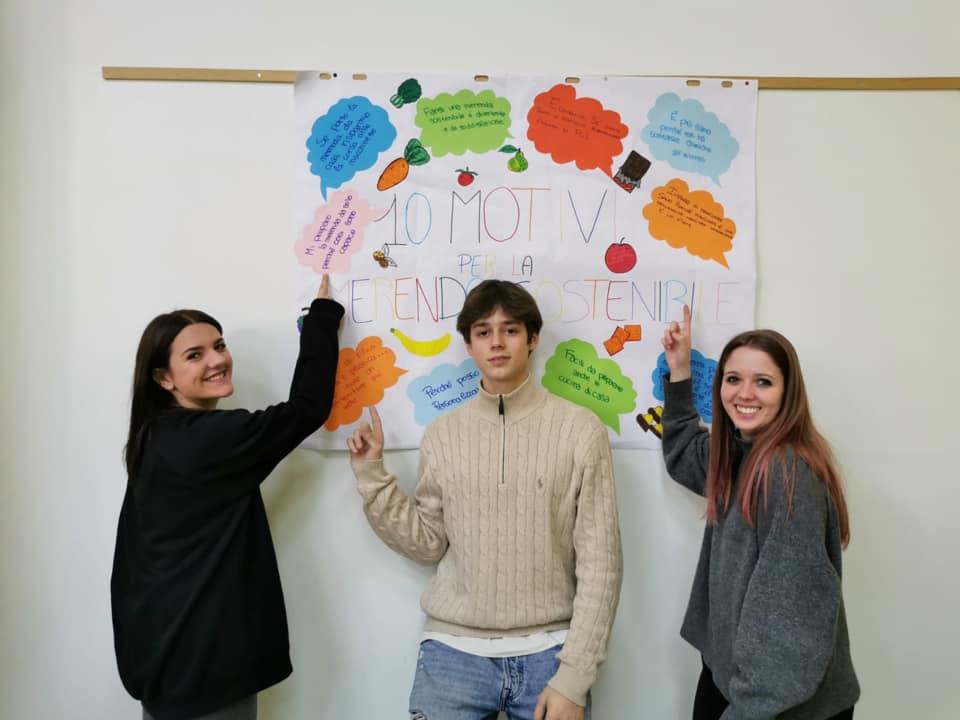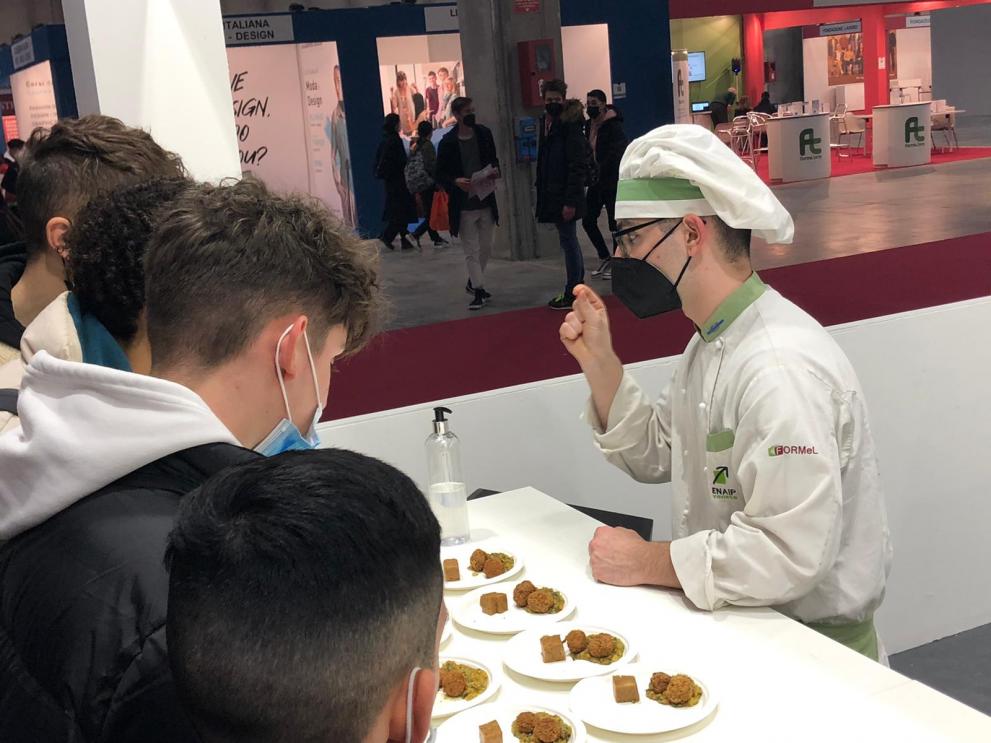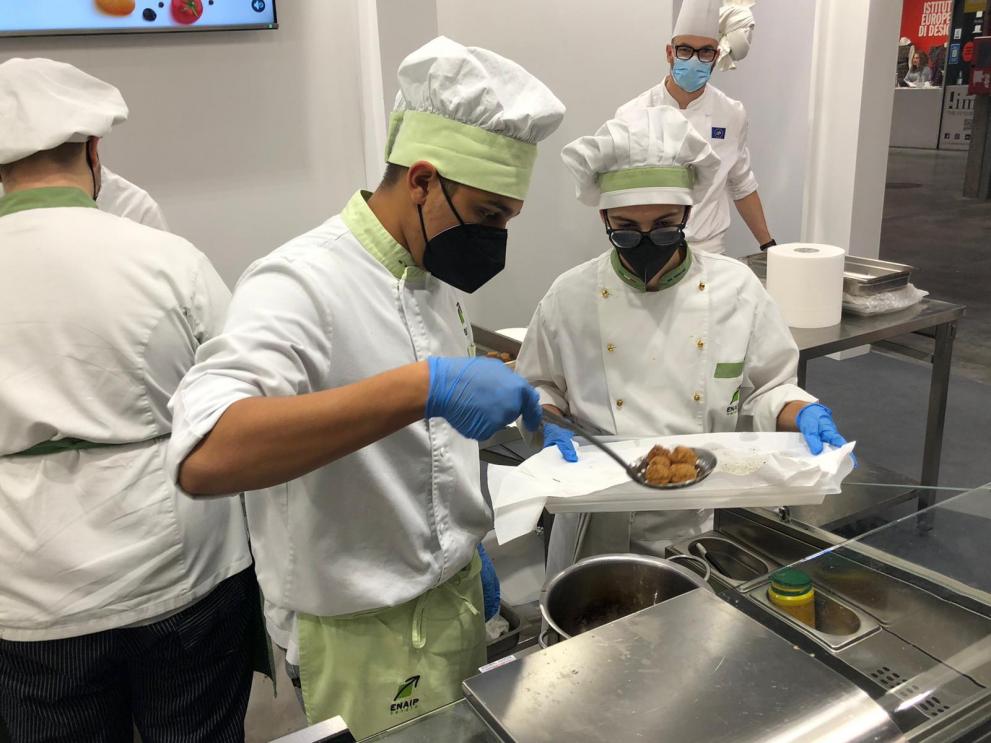Food waste generates 3.3 billion tons of carbon dioxide, which accelerates global climate change. In the European Union alone, 20% of all the food produced is lost or wasted every year. The European food service industry produces 10.5 million tons of food waste each year, or 12% of the total food waste.
Therefore, if you are looking for a place to start making a positive impact on the environment, how about taking a look at the food you eat? Or perhaps, more importantly, the food that you don’t eat.
The LIFE FOSTER project, led by the Italian network for Vocational Education and Training (VET), ENAIP NET, aims to prevent and reduce the food waste generated in the food service industry and promote habits that benefit the circular economy.
Working with partners in Italy, France, Spain and Malta, and funded by the European Union, the LIFE FOSTER project seeks to harness the power of VET and digital technology to influence people entering the food service industry to consider and understand the importance of reducing food waste.
This work starts with the ambitious target of training 15,000 VET students across Europe to adopt greener habits when preparing food. Hoping to reach as broad an audience as possible, the project also seeks to raise the awareness of teachers, employers, policymakers from the local to EU scale, and the wider community.
Indeed, the project's commitment to positioning VET and modern technology to highlight and tackle the environmental impact of food waste perfectly matches the aims of European Vocational Skills Week (EVSW), which this year focuses on digital technology and the green transition.
Social Influencers: Spreading the word about food waste and the circular economy
According to Barbara Archesso, International Project Manager at ENAIP NET, LIFE FOSTER training helps people to understand the importance of reducing food waste. This effect is particularly evident among young people, although adults are also showing interest in the topics proposed in the LIFE FOSTER training programme.
“I think that our young students are really concerned about the environment,” says Barbara. “They are looking to their future and actually wondering how they will live in 20 years’ time.”
Barbara explains how students in VET schools across Italy and the wider European Union are acting as ambassadors and disseminating the message about food waste and the circular economy in general.
“We start in the restaurant sector with our students training to be cooks,” says Barbara. “That message is then shared with students in other career paths. The peer to peer contact between students is vital. For example, we are seeing students attending courses for mechanics being inspired by the work we are doing in food waste and thinking how can they reduce waste in their industry. As these students enter the workplace and advance in their careers, they further promote this culture of being greener.”
Food Waste Hackathon
The transnational work allowed the project to develop a model that could be applied to different student groups and targets in different geographic contexts. This provided a variety of ideas including “zero-waste recipes”. This was particularly evident during the Food Waste Hackathon organised in April 2021, where 16 students from Italy and France competed to prepare recipes using the same basic ingredient – artichoke – with the purpose of preventing food waste as much as possible. Their challenge was to reduce the amount of artichoke which goes to waste, from an average of 60% down to 20%.
The students were selected among top achievers from ENAIP NET’s training centres in Veneto, Lombardy and Piedmont and from the Afpa National Agency for Adult Education for France and was live-streamed to more than 9,000 viewers.
Youth-led environmental initiatives
Young peoples' concerns about food waste and its impact on the environment have resulted in many taking a proactive stance towards raising awareness and tackling environmental issues.
Barbara highlights an independent initiative that some of ENAIP NET’s students in the town of Conegliano, in the Veneto region of Italy, started after attending the vocational training programme in the LIFE FOSTER project.
“There was a spontaneous initiative where students from one of our vocational training centres devoted an entire week to the zero-waste approach,” says Barbara. “They worked with their trainers to find businesses that could provide testimonials to this environmental strategy. They then produced posters and other materials to showcase their findings. We opened the VET Centre to the public so that they could view the work and hundreds of people visited over a weekend. It was really exciting to see how the students were engaged with this initiative."
The circular economy in the food service industry
According to Barbara, there are many different areas in the food service industry where waste becomes an issue.
“We want to reduce food waste by adopting prevention solutions,” says Barbara.
“Restaurant managers have to choose their suppliers correctly, which means they can work to avoid the possible corruption of food during transportation and storage. Then they have to process the food correctly, using appropriate tools and organising a menu that uses as much of the ingredients as possible.”
Barbara also highlights the importance of future restaurant professionals understanding how to manage food properly and prevent waste.
“They have to use the edible parts of the ingredients as much as possible and throw the non-edible parts into the correct bins and, when possible, use those non-edible parts for compost," says Barbara.
"Food waste occurs at all stages of the journey. So, it's not just the case of what's not eaten. It's also a case of using ingredients completely. This is so-called ‘circular cuisine’. Here, menu planning, correct and careful management of purchases and storage are crucial. This is all part of the circular economy, and is the reason why the LIFE FOSTER project is recognised as a best practice in the circular economy for both the Italian Circular Economy Stakeholders Platform (ICESP) and by the Italian organisation for regulations and standards (UNI).
Using technology to track food waste
As part of its commitment to reduce waste in the food service industry, LIFE FOSTER has developed a web-based application to monitor food waste.
“The food waste monitoring tool also includes information about the energy and the water consumption involved in food preparation and service,” says Barbara. “This is all part of the overall approach to prevent food waste. Understanding the bigger picture is important, but you have to know the drivers of food waste and measure wasted food in your business every day.”
The food waste application helps restaurant managers identify food waste and its value during the storage, preparation and consumption phases before identifying “spillage points” in individual menus. The application then helps restaurant managers design effective solutions to reduce this waste and associated costs. By demonstrating real solutions and highlighting potential savings, the message of the importance of reducing waste is more clearly illustrated to all restaurant staff who can then implement the changes.
The food waste monitoring application is currently used in 15 VET centres across Italy, France, Spain, and Malta. The application is also being tested in a small number of restaurants.
“On average, the food waste reduction registered in those centres is approximately 5%,” says Barbara. “This is a realistic reduction.”
Find out more
To learn more about how the LIFE FOSTER project is helping young people entering the food service industry take the necessary steps to reduce waste and protect the environment, visit their profile on the European Commission’s website.
European Vocational Skills Week (EVSW) takes place across EU member states from 16 to 20 May 2022, and will include both in-person and online events.
Photo Gallery

Shows the spontaneous initiative organised in one of our training centres. There you see 3 students showing a poster on the 10 reasons for choosing sustainable home-made snacks 
Here you see a young student explaining the recipe he prepared, which belongs to local culinary tradition uses stale bread. It shows how students become food waste prevention ambassadors 
Here you see students preparing food at the "Job&Orienta" Fair, the most important fair for the Education and Vocational training sector in Italy This is another picture from the "J&O" Fair, where you see the circular menu of the day pinned on the wall.
